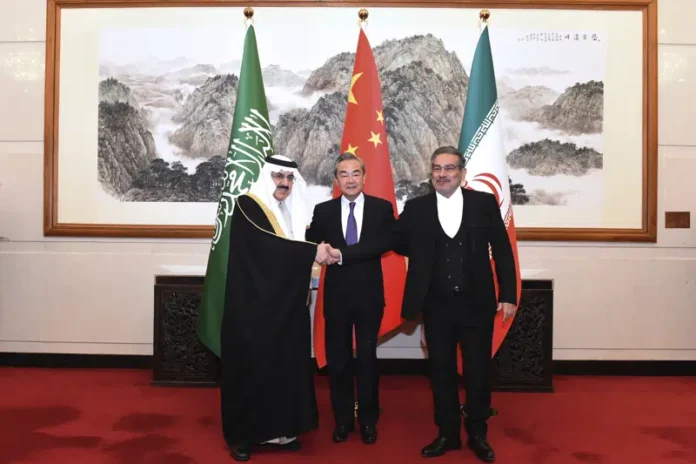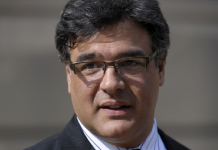JERUSALEM (AFP) – News of a reconciliation between longtime regional rivals Saudi Arabia and Iran sent shockwaves across the Middle East on Saturday, announcing Tehran’s diplomatic priorities and the threat posed by a personal crusade. It delivered a symbolic blow to Israeli Prime Minister Benjamin Netanyahu.
The breakthrough, the culmination of more than a year of his negotiations in Baghdad and recent talks in China, was also entwined with Israel’s domestic politics, reflecting Israel’s division in a moment of national unrest.
The agreement, which gives Iran and Saudi Arabia two months to reopen their respective embassies and restore ties after a seven-year break, marks one of the most notable changes in Middle East diplomacy in recent years. Syria has long been sandwiched between the Sunni kingdom and Shiite power.
Even Netanyahu’s ally and former Israeli UN Ambassador Danny Dannon, who recently predicted a peace deal with Saudi Arabia in 2023, seemed troubled. “It doesn’t help our efforts,” he said when asked if the settlement had reduced the likelihood that the kingdom would recognize Israel.
In Yemen, where the conflict between Saudi Arabia and Iran has had the most devastating consequences, both factions are cautious but hopeful.
A Saudi-led military coalition intervened in the Yemeni conflict in 2015, months after Iran-backed Houthi militias captured the capital Sanaa in 2014 and forced the internationally recognized government into exile in Saudi Arabia. .
The Houthi rebels hailed the deal as a small but positive step.
Mohammed Abdul Salam, the Houthi spokesman and chief negotiator, said: “The region needs to return to normal relations between states so that the Islamic community can regain the security lost to foreign intervention. there is,” he said.
The Saudi-backed Yemeni government expressed some optimism — and caveats.
“The Yemeni government’s position depends on actions and practices not words and claims,” it said, adding it would proceed cautiously “until observing a true change in (Iranian) behavior.”
Analysts did not expect an immediate settlement to the conflict, but said direct talks and better relations could create momentum for a separate agreement that may offer both countries an exit from a disastrous war.
“The ball now is in the court of the Yemeni domestic warring parties to prioritize Yemen’s national interest in reaching a peace deal and be inspired by this initial positive step,” said Afrah Nasser, a non-resident fellow at the Washington-based Arab Center.
Anna Jacobs, senior Gulf analyst with the International Crisis Group, said she believed the deal was tied to a de-escalation in Yemen.
“It is difficult to imagine a Saudi-Iran agreement to resume diplomatic relations and re-open embassies within a two-month period without some assurances from Iran to more seriously support conflict resolution efforts in Yemen,” she said. War-torn Syria also hailed the deal as a step to ease tensions that have exacerbated internal conflict. Iran is a key supporter of Syria’s Bashar al-Assad regime, while Saudi Arabia supports opposition forces trying to oust him from power.
The Syrian Ministry of Foreign Affairs called it an “important step leading to enhanced security and stability in the region.”
Former prime minister and Israeli opposition leader Yair Lapid denounced the Riyadh-Tehran deal as a “complete and dangerous failure of the Israeli government’s foreign policy.”
Another opposition lawmaker, Gideon Searle, mocked Netanyahu’s goal of a formal relationship with the kingdom. “Netanyahu promised peace to Saudi Arabia,” he wrote on social media. “Finally [Saudi Arabia] succeeded … with Iran.”
Sunday, February 22, 2026
More
© London Post, All Rights Reserved by Independent Media Group UK Limited.






